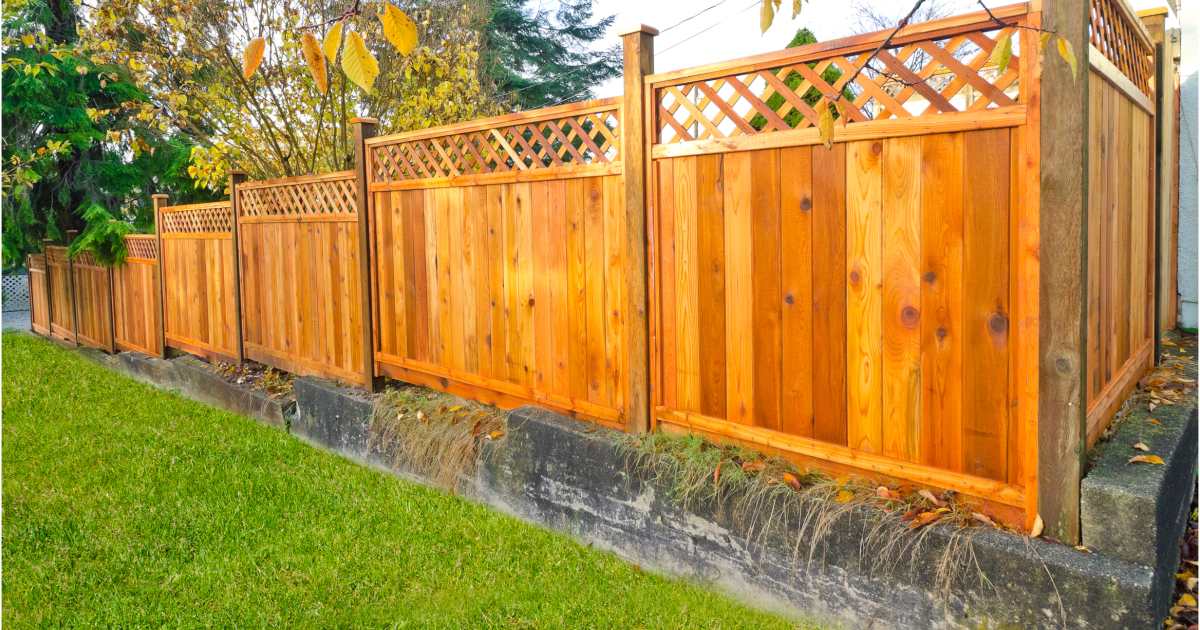All Categories
Featured
When you determine to mount a fence around your property, it's important to understand the authorization requirements details to your area. While mounting a fence can appear like a straightforward home renovation job, neighborhood regulations and guidelines should be followed to make certain the installment is compliant and lawful. Falling short to protect the correct permits can result in fines or even require you to get rid of the fencing. Here's an extensive take a look at the licenses you may require for fencing installation.
Why Do You Need a License for Fence Installation? A fencing is greater than simply a barrier in between buildings-- it can influence safety, home worth, looks, and also ecological conditions. City governments call for authorizations to guarantee that fences fulfill particular standards and do not trigger problems for utilities, next-door neighbors, or the area in its entirety. Licenses additionally guarantee that the installation abides by zoning regulations, constructing codes, and security guidelines.
![]()
Types of Authorizations You May Require. Structure Authorization. A building permit is one of the most typical authorizations needed for fence installment. If you're developing a fencing over a particular elevation (generally over 6 feet), you'll likely need a structure permit.
Zoning Permit. Zoning legislations govern exactly how land is used in a specific area, and they include policies about fencings. A zoning authorization ensures your fence follows elevation, place, and obstacle laws. Fencings might need to be set back a particular range from sidewalks, roads, or residential or commercial property lines to stop blockage or disturbance with energies. In some situations, zoning laws can additionally define which materials are enabled.
HOA Approval. You might need to seek approval before setting up a fence if your residential property is part of a property owners organization (HOA) HOAs typically have standards that regulate the aesthetics and structure of fences to ensure they agree with the area. You may require to send your plans for authorization, and the HOA might limit fencing product, style, or elevation.
Specialized Permits. In some locations, there might be added licenses needed for certain circumstances. If your fencing is near a protected environmental location or situated in a flooding area, you may require to obtain specialized licenses related to environmental influence. If the fencing is in a location with underground utilities, you might need to obtain clearance to prevent damaging pipes or cables.
![]()
Easement or Utility Firm Approval. Prior to mounting a fence, it's important to examine whether the property includes an easement, such as an utility easement, which can affect where you can put your fence. Easements are areas of land designated for public or exclusive energies, and you may need consent from the energy business or other authority to develop within this location.
How to Figure Out What Permits You Required. To ensure that you're complying with all the necessary regulations, here's how you can identify the particular licenses needed for your fence installment:
![]()
Go To Your Local Government Office: The initial action is to inspect with your neighborhood building or zoning division. Many cities and areas have standards offered online that specify what types of authorizations are needed for fence setup. If not, calling or visiting the office face to face can assist clarify the procedure. Examine Your City's Site: Several districts give details about fencing installations and the authorizations required with their main web sites. Some web sites also allow you to send applications online. Seek Advice From a Fence Installation Specialist: If you're unsure concerning neighborhood laws, a professional fence professional can aid. They recognize with the allowing procedure and can assist you via the steps. The Effects of Not Obtaining an Authorization. Falling short to secure the essential permits prior to setting up a fence can result in considerable consequences. You might be fined or required to remove the fencing totally.
Conclusion. Mounting a fencing around your home can include both safety and curb appeal, yet it is necessary to ensure you're complying with the lawful steps in the process. Investigating the details license needs for your area, including building licenses, zoning policies, HOA authorization, and utility approvals, will certainly assist guarantee your fencing installment goes smoothly. Putting in the time to recognize these demands now can save you from pricey blunders and potential lawful problems down the line.
Why Do You Need a License for Fence Installation? A fencing is greater than simply a barrier in between buildings-- it can influence safety, home worth, looks, and also ecological conditions. City governments call for authorizations to guarantee that fences fulfill particular standards and do not trigger problems for utilities, next-door neighbors, or the area in its entirety. Licenses additionally guarantee that the installation abides by zoning regulations, constructing codes, and security guidelines.

Types of Authorizations You May Require. Structure Authorization. A building permit is one of the most typical authorizations needed for fence installment. If you're developing a fencing over a particular elevation (generally over 6 feet), you'll likely need a structure permit.
Zoning Permit. Zoning legislations govern exactly how land is used in a specific area, and they include policies about fencings. A zoning authorization ensures your fence follows elevation, place, and obstacle laws. Fencings might need to be set back a particular range from sidewalks, roads, or residential or commercial property lines to stop blockage or disturbance with energies. In some situations, zoning laws can additionally define which materials are enabled.
HOA Approval. You might need to seek approval before setting up a fence if your residential property is part of a property owners organization (HOA) HOAs typically have standards that regulate the aesthetics and structure of fences to ensure they agree with the area. You may require to send your plans for authorization, and the HOA might limit fencing product, style, or elevation.
Specialized Permits. In some locations, there might be added licenses needed for certain circumstances. If your fencing is near a protected environmental location or situated in a flooding area, you may require to obtain specialized licenses related to environmental influence. If the fencing is in a location with underground utilities, you might need to obtain clearance to prevent damaging pipes or cables.

Easement or Utility Firm Approval. Prior to mounting a fence, it's important to examine whether the property includes an easement, such as an utility easement, which can affect where you can put your fence. Easements are areas of land designated for public or exclusive energies, and you may need consent from the energy business or other authority to develop within this location.
How to Figure Out What Permits You Required. To ensure that you're complying with all the necessary regulations, here's how you can identify the particular licenses needed for your fence installment:

Go To Your Local Government Office: The initial action is to inspect with your neighborhood building or zoning division. Many cities and areas have standards offered online that specify what types of authorizations are needed for fence setup. If not, calling or visiting the office face to face can assist clarify the procedure. Examine Your City's Site: Several districts give details about fencing installations and the authorizations required with their main web sites. Some web sites also allow you to send applications online. Seek Advice From a Fence Installation Specialist: If you're unsure concerning neighborhood laws, a professional fence professional can aid. They recognize with the allowing procedure and can assist you via the steps. The Effects of Not Obtaining an Authorization. Falling short to secure the essential permits prior to setting up a fence can result in considerable consequences. You might be fined or required to remove the fencing totally.
Conclusion. Mounting a fencing around your home can include both safety and curb appeal, yet it is necessary to ensure you're complying with the lawful steps in the process. Investigating the details license needs for your area, including building licenses, zoning policies, HOA authorization, and utility approvals, will certainly assist guarantee your fencing installment goes smoothly. Putting in the time to recognize these demands now can save you from pricey blunders and potential lawful problems down the line.
Latest Posts
What Permits Are Needed for Installing a Fence in My Area?
Published Dec 23, 24
0 min read
Trusted Tinley Park Roof Repairs and Replacements - A-Abel Roofing
Published Dec 23, 24
1 min read
Savor Exceptional Cuisine at Red Hawk Gastropub
Published Dec 23, 24
1 min read